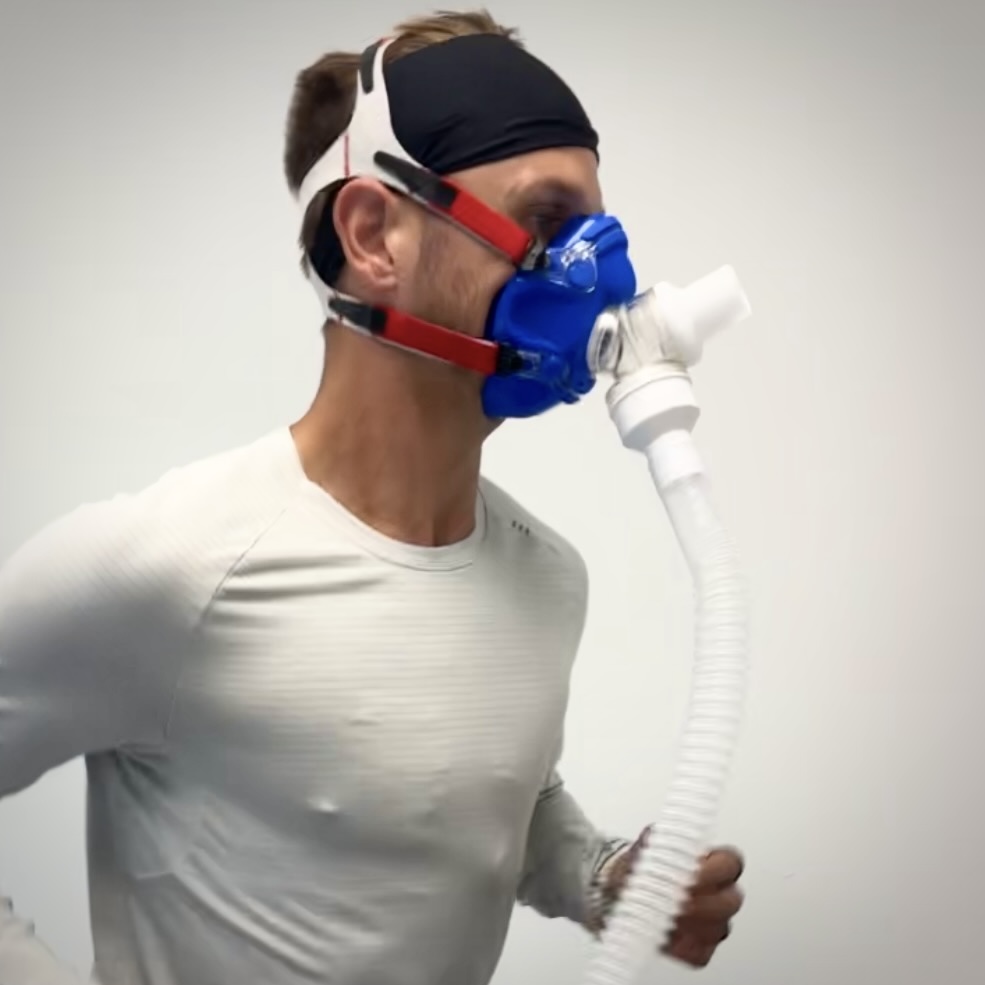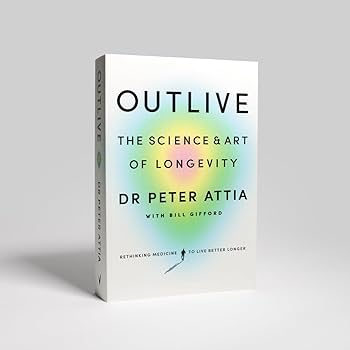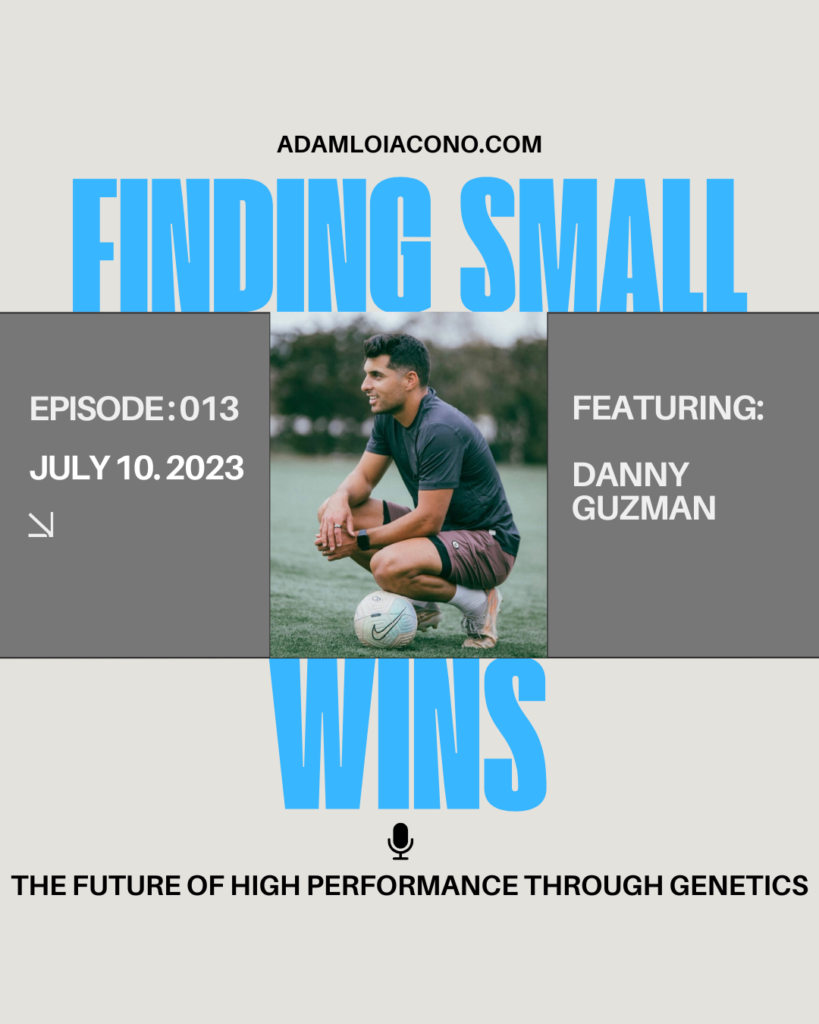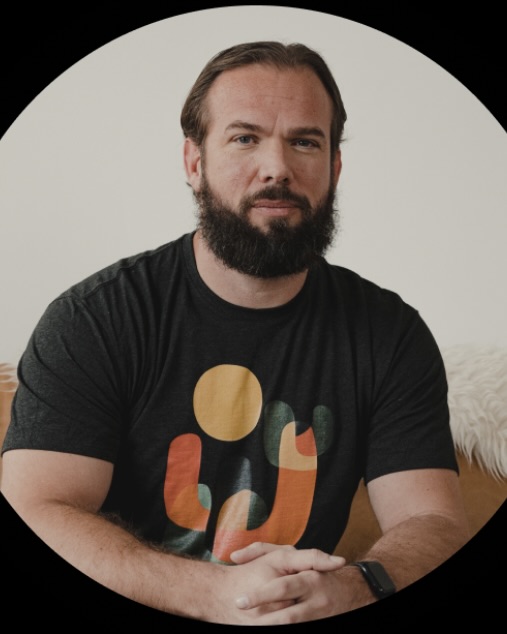“Performance is prevention when done right because your VO2 max and muscle mass aren’t just fitness metrics—they’re longevity metrics.”
Dr. Jesse Greer, MD
What You will learn
- Why performance medicine is the new frontier for preventative healthcare.
- How Jesse Greer’s Green Beret background shaped his medical philosophy.
- What “Medicine 3.0” really means and how it’s being applied today.
- The truth about GLP-1s, metabolic health, and modern weight loss trends.
- Why overtraining may be hurting your performance more than helping it.
Listen here – Finding Small Wins Podcast:
Dr. Jesse Greer – From the Special Forces to Preventative Medicine
When you talk to someone like Jesse Greer, you realize quickly that traditional healthcare is far behind where it needs to be. Jesse isn’t just a physician—he’s a Green Beret, a battalion surgeon, and now, a pioneer in the space of preventative and performance-based medicine.
In this episode of Finding Small Wins, we dug deep into his journey through the military, his shift away from the traditional medical model, and how he’s using his company Preamble to revolutionize healthspan, not just lifespan.
Whether you’re a professional athlete, former soldier, or simply someone looking to upgrade your health, this conversation holds the keys to changing your trajectory.
About Dr. Jesse Greer
Dr. Jesse Greer is a former Special Forces battalion surgeon who served in elite units across the globe. He trained at Walter Reed during the height of the Iraq and Afghanistan wars, developed trauma care systems for combat zones, and earned the respect of the toughest warriors on earth.
Today, Jesse is the founder of Preamble, a performance and preventative medicine practice in Scottsdale, AZ, designed to give people the tools they need to stay healthy for life—long before illness ever appears.
Why Performance Medicine Is the New Frontier for Preventative Healthcare
The current healthcare system is reactive. It waits until you’re sick, then tries to patch you up enough to send you on your way. Jesse’s philosophy—and mine—is rooted in the opposite. Performance medicine looks at how elite systems operate: athletes, soldiers, CEOs. We bring those same systems to the everyday person.
It’s not about fixing disease. It’s about creating health. VO2 max, strength-to-bodyweight ratio, body composition, hormone levels—these are not “athlete” metrics. They’re human metrics. And if we know what to measure, we know how to improve it.

Jesse’s Journey: From Green Beret to Healthspan Innovator
Jesse’s inflection point didn’t come from a textbook—it came from war. Watching elite soldiers break down from chronic stress, injury, and dysfunction, despite their fitness, made one thing clear: something was missing. He began asking different questions—why are their hormones suppressed? Why isn’t anyone measuring inflammation? Why don’t we optimize before there’s a problem?
That curiosity turned into action. From setting fractures in remote villages to running bloodwork in a Scottsdale clinic, Jesse built his medical model on one thing—preparation beats prescription. Always.
What “Medicine 3.0” Really Means
You’ve probably heard the term “Medicine 3.0,” popularized by Peter Attia. But what does it mean in practice?
Jesse defines it not as functional, integrative, or conventional—it’s a new operating system. Medicine 3.0 starts with an honest report card of your health: body composition, hormone profiles, VO2 testing, metabolic resilience. Then it uses that data to map a course—training, nutrition, supplements, and lifestyle habits that are measured, monitored, and managed over time.
It’s not “anti-sick” care. It’s performance healthcare—for everyone.

GLP-1s and the Modern Metabolic Crisis
We had to go here—GLP-1 agonists like Ozempic and Mounjaro are all over the news. Jesse’s perspective is clear: they’re tools, not solutions. Used with care, they can be game-changers for people stuck in a metabolic rut. But used in isolation? That’s a Band-Aid on a bullet hole.
His clinic uses them in targeted ways, always paired with strength training, nutrition planning, and hormone optimization. The goal? Small wins that stack. You use the tool to get started—but you don’t stay on the tool forever. You build systems around it.
The Hidden Danger of Overtraining and Hormonal Burnout
Here’s something our high-performing listeners need to hear: more isn’t always better. Jesse sees it in labs every week—low testosterone, disrupted sleep, reactive hypoglycemia, suppressed metabolic markers—all in people who “train hard” seven days a week.
Overtraining without recovery is the silent killer of performance. It’s not just about doing more; it’s about doing the right things at the right intensity, and knowing when to rest. It’s about upgrading from training hard to training smart.
Connect with Jesse Greer
Want to learn more about Jesse and Preamble?
🔗 Website: preamble.co
📍 Location: Scottsdale, AZ (also accepts virtual clients nationwide)
Episode timeline
00:00 – Jesse’s background in Special Forces and trauma care
06:00 – Why medicine needed a new model
10:30 – Inside a Special Ops performance program
16:00 – Transitioning from military to private practice
19:00 – What is Medicine 3.0?
24:00 – Breaking down the performance metrics
31:00 – Metabolic health: the first domino
34:00 – The truth about GLP-1 inhibitors
40:00 – If Jesse worked in pro sports again…
45:00 – The dangers of overtraining
50:00 – What labs really show in hard-charging clients
53:00 – Practical advice to upgrade your performance
58:00 – How to work with Jesse and the Preamble team
Subscribe & Learn More
Enjoyed this episode? Subscribe to Finding Small Wins today and never miss a conversation on performance, rehab, and health optimization.

more insights on Longevity thru genetics
Tune in to MLS Cup Champion Danny Guzman break down how we can all optimize our own genetics to shape our performance programs.
Want to Learn More?
Subscribe today to Adam’s YouTube channel to get the latest on rehab, training, sports science, and so much more!




